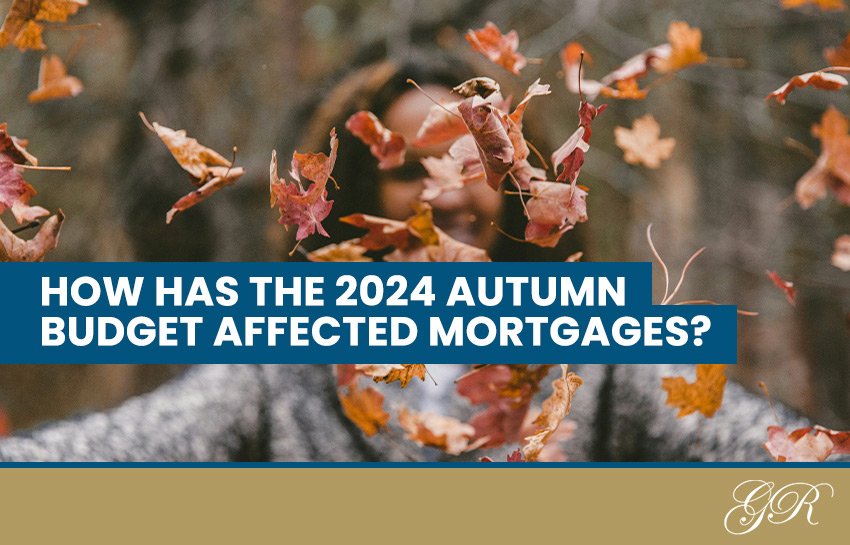December 2024
The 2024 Autumn Budget from the new Labour Government was our first chance to see the economic plans for the coming years of their administration. Some significant changes were made, including increases in employer national insurance contributions, capital gains tax, thresholds for inheritance tax, and higher income tax rates.
For UK residents looking to buy a new home, whether a first-time buyer, home mover, or property investor looking to purchase rental homes, one of the biggest questions is how the Budget announcement will affect borrowing costs and property transactions.
The 2024 Autumn Budget introduced a higher stamp duty surcharge for second homes. It extended the mortgage guarantee scheme, giving hope to first-time buyers looking to get on the property ladder in 2025. While mortgage rates are expected to fall, this will likely be slower than first predicted.
Read on for Goldmanread’s essential guide on how the budget will affect mortgages.
Are mortgage interest rates likely to go up or down?
The immediate impact of the Autumn Budget on mortgage rates was not entirely clear. At first, interest rates rose on the expectation that UK government rates would need to remain higher to attract investment in the UK.
Subsequently, mortgage rates have started to ease off a little. Generally, the expectation is that interest rates will continue to fall but at a more gradual rate than originally expected.
Factors affecting the housing market after the Autumn Budget 2024
There are a number of factors that are affecting the housing market after the Autumn Budget.
Interest rates
Interest rates are likely to remain higher and fall more gradually than previously expected before the Budget.
Stamp Duty Land Tax (SDLT)
Stamp duty threshold tax rates were altered; most significantly, the stamp duty threshold on the purchase of additional properties was increased from 3% to 5%.
Increasing stamp duty in this way is aimed at raising funds for government spending whilst at the same time curbing the increase in property prices. However, it may also have the effect of subduing the housing market.
Read our article on whether it’s possible to avoid paying stamp duty on a second home.
Capital Gains Tax
Before the Autumn Budget, it was widely expected that the government would increase the rates of capital gains tax (CGT) payable on the sale of second homes and rental properties. While this did not happen, CGT was increased on some non-property assets.
Clearly, a future increase in CGT on additional properties such as holiday lets, second homes, and buy-to-lets is still possible; only time will tell.
Government housing initiatives
The Budget included several initiatives to support buyers in the UK housing market.
- Affordable housing: The UK has a chronic shortage of affordable homes. To address this, £500 million was pledged towards social housing as part of a wider £5 billion plan.
- Right to Buy reforms: Local authorities were given additional support to replace council homes sold through Right to Buy. This will hopefully prevent rental market shortages and stabilise rent costs.
- Mortgage Guarantee Scheme: The mortgage guarantee scheme was extended, allowing first time buyers to buy a home with a 95% loan-to-value (LTV) mortgage. The government has promised to work towards making the mortgage guarantee scheme permanently available, which is great news to those with smaller deposits.
Is now the right time to buy a house?
It’s still a little early to assess the Budget’s full effect on the UK housing market.
Whilst the changes are designed to have a positive effect on house prices, the property market will take time to recover. In our opinion the “right” time to buy a house depends on your long-term plans rather than short-term market fluctuations.
If you plan to hold onto your property for at least 5 to 10 years, buying now could be a sensible choice, especially if house prices continue to climb.
Can I lock in a fixed-rate mortgage to protect myself from future rate rises?
The benefit of a fixed-rate mortgage is predictable monthly mortgage repayments. So, if you expect rates to rise in the future, a fixed rate is the way to go.
While fixed rates may currently appear higher than variable options, they can provide peace of mind if the market should become more volatile. Consulting a mortgage broker can help you choose the right product based on your financial circumstances and attitude to risk.
Should I wait for the next Budget before buying a house?
If you’re looking to buy a house, waiting for the next Budget might feel like a safer option, but you could miss out. As with any major life decision, “analysis paralysis” never really helps move things forward. Making a decision based on your financial readiness and housing needs is often the best approach.
There is a consistent lack of housing stock in the UK market, which drives long-term house price inflation. If you don’t buy now, you will undoubtedly face higher prices as demand continues to outstrip supply.
Also, bear in mind that stamp duty rates will increase back to the pre-2023 levels from 1 April 2025. For a home costing £450,000, that is an increase in stamp duty of £2,500. So acting sooner can help you save a significant amount.
How can a mortgage broker help me understand my options?
At Goldmanread, we help all sorts of home buyers and property investors to get the right mortgage. Whether you’re buying your first residential property or expanding your portfolio, our personalised advice can make your home buying journey smoother.
We offer:
- Guidance on mortgage affordability.
- Independent advice on thousands of mortgage products.
- Advice on when and how to pay stamp duty, including exploring stamp duty relief options.
- Support for buyers impacted by the stamp duty surcharge on buy-to-let properties or additional properties.
Get in touch with an experienced, friendly mortgage broker today
Contact Goldmanread today to explore your mortgage options and take the next step on the property ladder with confidence.

